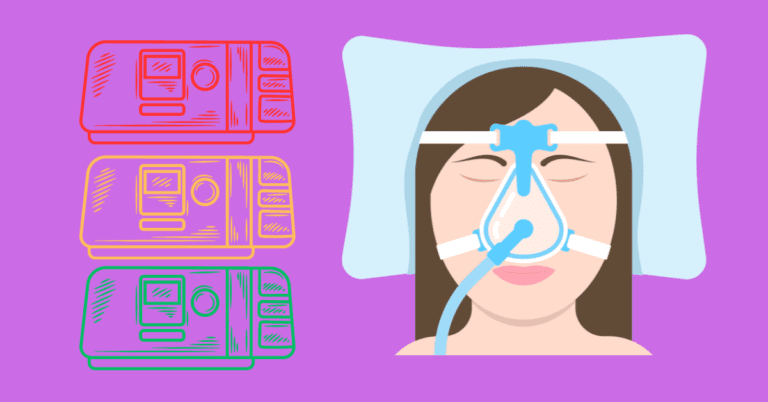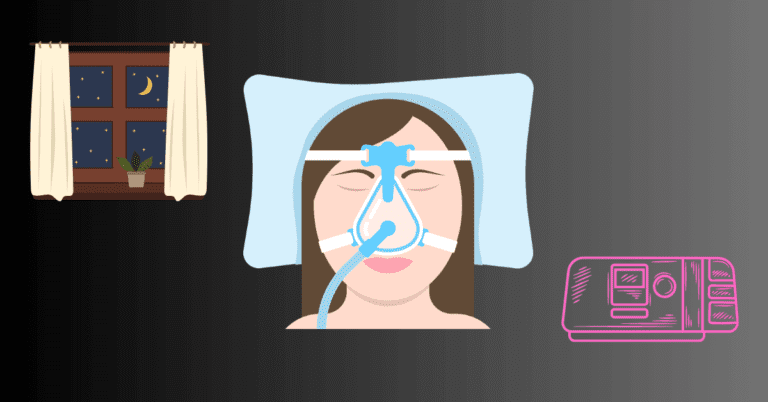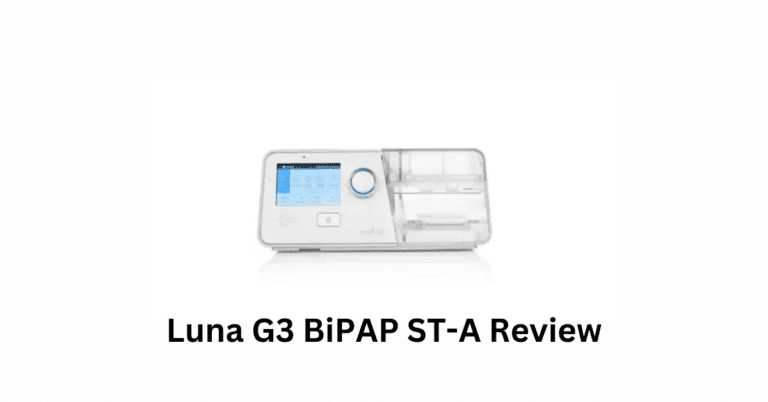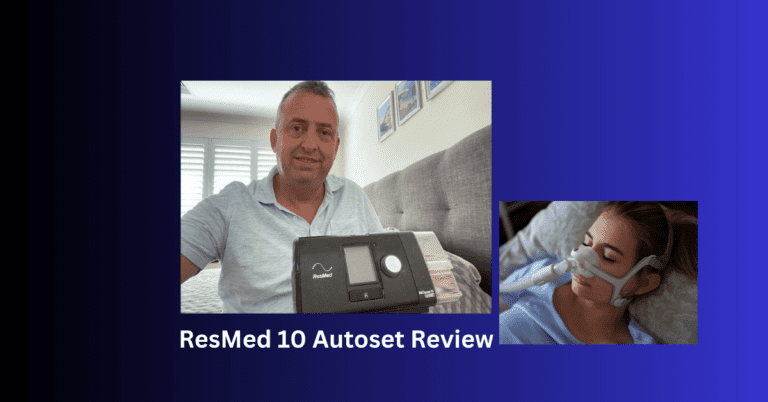ResMed AirSense 11 AutoSet Review: The Latest CPAP tech!
“This post contains affiliate links. I may earn a commission if you buy through these links, at no extra cost to you. Read my Disclaimer for more details.”
As you might know, I’ve been using the ResMed AirSense 10 AutoSet for a while now, and it’s been a game-changer for my sleep apnea treatment.
Like many CPAP users, I struggled at first—dry mouth, mask leaks, and that feeling of being strapped to an alien-like mask. But once I got used to it, my sleep and health improved dramatically, and I couldn’t imagine returning to the days of waking up exhausted with a sore throat from all that snoring.
Now, I’m seriously considering upgrading to the ResMed AirSense 11 AutoSet.
Why?
Only really for the purposes of this blog and cause I’m a fan of new tech.
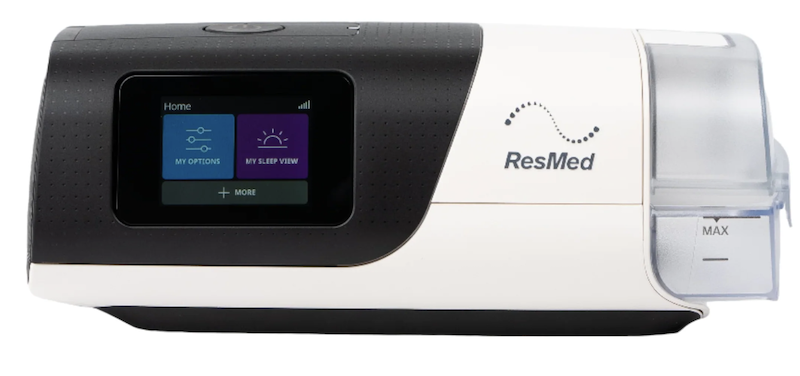
It’s been out for a couple of years, and I’ve read plenty of positive reviews, but I wanted to do a deep dive before making the switch.
If you’re in the same boat—wondering if upgrading from the AirSense 10 to the AirSense 11 is worth it—this review will help you decide.
This ResMed AirSense 11 AutoSet review is also for those who are considering it as their first CPAP machine.
What Is the ResMed AirSense 11 AutoSet?
The ResMed AirSense 11 AutoSet is a premium (yes, that means it will cost you a bit more!) auto-adjusting CPAP machine designed to treat obstructive sleep apnea (OSA). It’s the latest model in ResMed’s popular AirSense line, offering advanced features to improve comfort, ease of use, and therapy effectiveness.
This machine comes with AutoSet technology, which means it automatically adjusts pressure levels throughout the night based on your breathing. And that’s a cool feature because your breathing and sleep modes change during the night.
It also includes enhanced digital health tools that work with the MyAir app, making it easier to track sleep data and adjust settings.
In this video below, Taylor from SleepFoundation.org takes us through the ResMed Airsense 11 features.
Key Features of the ResMed AirSense 11
Let’s take a look at what sets the AirSense 11 apart from its predecessor.
1. Sleeker, More Modern Design
You’ll first notice that the AirSense 11 is smaller and lighter than the AirSense 10. ResMed has streamlined the design, making it more compact and visually appealing. If you travel frequently, the reduced size is a big plus.
2. Upgraded Touchscreen Interface
Gone are the physical buttons and dials—the AirSense 11 now has a full-color touchscreen. This makes navigating menus and adjusting settings much easier. If you’re used to the AirSense 10’s dial, there may be a learning curve, but the touchscreen feels intuitive and modern.
3. Improved Humidifier with ClimatelineAir Tubing
ResMed kept the built-in heated humidifier, but it now works more efficiently with ClimatelineAir tubing to provide consistent temperature and humidity levels. This means less dryness and congestion, which are common issues for CPAP users.
4. AutoSet & AutoSet for Her
Just like the AirSense 10, the AirSense 11 offers both AutoSet and AutoSet for Her modes. The AutoSet for Her feature provides gentler pressure adjustments, which can be beneficial for women who experience higher airway resistance.
5. Enhanced Digital Health Features
One of the biggest upgrades is the ResMed Personal Therapy Assistant, which provides step-by-step guidance through the MyAir app. You can get personalized coaching, troubleshoot common issues, and view your sleep data in real-time. If you’re someone who likes tracking progress, this feature is a game-changer.
6. Over-the-Air Software Updates
The AirSense 11 supports over-the-air updates, meaning ResMed can push software improvements directly to your machine. This future-proofs the device, ensuring you always have access to the latest features.
Comparing the ResMed AirSense 10 vs. AirSense 11
If you’re debating whether to upgrade, here’s a side-by-side comparison of the two models.
| Feature | AirSense 10 AutoSet | AirSense 11 AutoSet |
|---|---|---|
| Size & Weight | Larger & bulkier | More compact & lightweight |
| User Interface | Physical buttons & dial | Full-color touchscreen |
| Humidification | Built-in humidifier | Improved humidification with ClimatelineAir |
| AutoSet for Her | Yes | Yes |
| Connectivity | Limited wireless updates | Over-the-air software updates |
| Digital Coaching | Basic MyAir integration | Enhanced MyAir with Personal Therapy Assistant |
| Mask Fit Detection | Yes | Yes (more refined algorithm) |
Is the Upgrade Worth It?
If you already own an AirSense 10, upgrading isn’t necessary unless you’re looking for a more compact machine with a touchscreen and better digital tools.
However, if your current CPAP is getting older or you travel often, the AirSense 11 is a worthy investment.
User Experience & Comfort
Noise Level
Both the AirSense 10 and 11 are whisper-quiet, running at about 27 dB (which is quieter than a soft whisper). ResMed has always been known for quiet machines, and the AirSense 11 is no exception.
Mask Compatibility
The AirSense 11 is compatible with most CPAP masks, including popular models like:
- ResMed AirFit P10 (nasal pillow)
- ResMed AirFit N20 (nasal mask)
- ResMed AirFit F20 (full face mask) – This is the mask I use
If you’re upgrading from the AirSense 10, your existing mask should work just fine.
Ease of Setup
With the Personal Therapy Assistant in the MyAir app, setting up the AirSense 11 is easier than ever. The guided setup walks you through everything, from mask fitting to pressure settings, making it ideal for both new and experienced CPAP users.
Price & Availability
How Much Does the AirSense 11 Cost?
The ResMed AirSense 11 AutoSet typically costs between $800 and $1,200, depending on the retailer and whether insurance covers part of it.
Where to Buy
You can purchase the AirSense 11 here.
Click here to read my Best CPAP Machines roundup.
Pros & Cons of the ResMed AirSense 11 AutoSet
Pros
✅ Sleeker, more compact design
✅ Touchscreen interface for easier navigation
✅ Auto-adjusting pressure for comfort
✅ Advanced humidification reduces dryness
✅ Improved MyAir app with personal coaching
✅ Over-the-air software updates
Cons
❌ More expensive than the AirSense 10
❌ Touchscreen might take time to get used to
❌ Some users prefer physical buttons over a touchscreen
Final Verdict: Should You Upgrade?
If you already own an AirSense 10:
Upgrading is optional unless you want the touchscreen, improved humidification, and MyAir coaching features. If your current machine is working well, you might not notice a huge difference.
If you’re new to CPAP therapy or have an older machine:
The AirSense 11 is an excellent choice. It offers modern features, better tracking, and a more user-friendly interface, making therapy easier and more comfortable.
As someone who is still using the AirSense 10, I’m leaning toward upgrading later this year.
The enhanced digital tools and sleeker design are compelling, but my current machine still works well. If my CPAP starts showing signs of wear, the AirSense 11 is definitely my next purchase.
Thanks for reading my ResMed AirSense 11 AutoSet review. Please let me know in the comments below if you have any questions about this machine.
